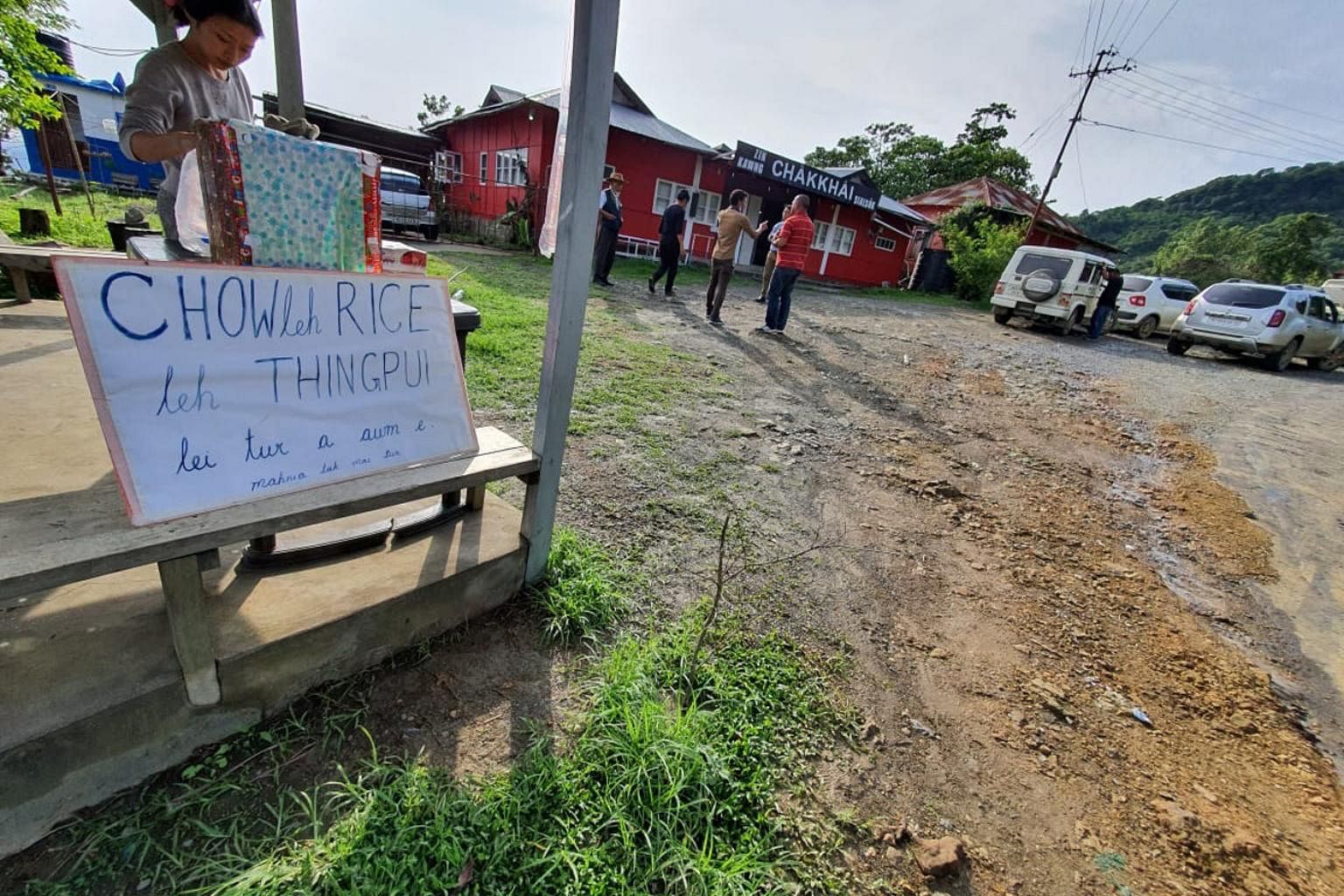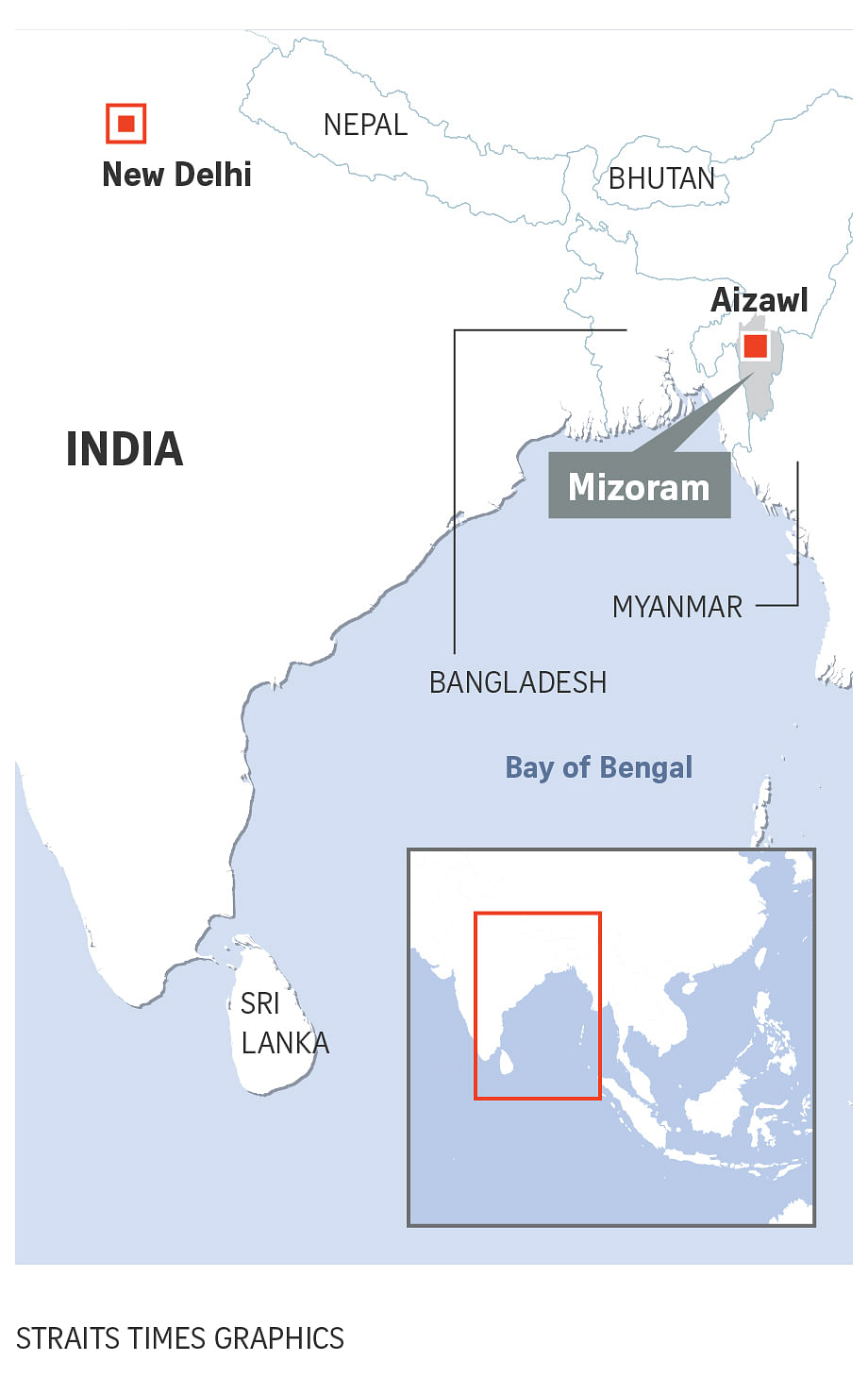NEW DELHI - At a time when a billowing coronavirus pandemic has saddled India with the world's third-highest death toll, a tiny state in the far eastern corner of the country has staved off Covid-19 fatalities.
Mizoram, with a population of around 1.12 million, has not recorded a single death among more than 1,300 coronavirus infections.
It is the only Indian state that has not suffered a Covid-19 fatality, a hopeful feat even when compared to India's relatively low rate of around 53 deaths per million people because of the illness.
Sandwiched between Bangladesh and Myanmar, the state also has a low case tally of 1,333 against the country's second-highest global total of more than 4.46 million coronavirus cases and 75,062 deaths as of Thursday morning.
This success has been attributed to an effective partnership between the state government, which is led by the Mizo National Front, and local community members.
"What we have achieved is the result of a concerted effort from all corners of the state, whether it is governmental, non-governmental organisations (NGOs) or church-based organisations," Dr Pachuau Lalmalsawma, the spokesman and state nodal officer for Covid-19, told The Straits Times.
As the state led with its "trace, test and treat" approach, various churches set up quarantine facilities in their premises and NGOs pitched in with foot soldiers to carry out the necessary tasks.
Around 87 per cent of Mizoram's population practises Christianity and the church and civil society organisations wield a strong influence over the largely homogeneous Mizo society.
This includes the Central Young Mizo Association (CYMA), which claims around 446,000 members. Its representatives are part of the task force set up by the government to fight Covid-19 in each district and also at the local level right down to villages and urban neighbourhoods.

"We are working with the government, joining hands together," Mr Vanlalruata, CYMA president, told ST. Its volunteers helped enforce an effective lockdown, besides carrying out awareness drives and addressing essential needs of those under quarantine.
While the authorities elsewhere in India struggled to enforce norms mandating physical distancing and wearing masks, doing so has been relatively smooth sailing in Mizoram.
"People here are so conscious and self-disciplined that once an order is imposed, they follow it in letter and spirit," Professor Rabindra Kumar Mohanty, head of the sociology department at Mizoram University in Aizawl, told ST.
"Here, we don't need the police. It is a self-contained community with empowered local councils that enforce public discipline," he added.
The state has a literacy rate of more than 91 per cent and its disciplined population has often been lauded for its public behaviour. Its capital Aizawl, for instance, is the country's first city to have a "no-honking" policy.
Mizoram's closely knit society and traditional practice of community service, best illustrated by the ethos of "Tlawmngaihna", have also held Mizos in good stead as locals looked out for one another amid the pandemic.
Tlawmngaihna, which cannot be translated, is a concept that draws the Mizos together in a social safety net by prioritising benevolence and service for others - especially women, children and elders - even to the point of sacrificing one's life.
While the state recorded its first case on March 24, with a religious scholar returning from the Netherlands testing positive, most of the subsequent cases have also been traced to visitors from outside the state, especially army and paramilitary staff and truck drivers. These two groups account for more than half of the state's cases.

International borders are currently sealed and those coming in via the state borders are being tested with rapid antigen test kits. Dr T. Lalhmangaihi, director of Zoram Medical College, which runs the state's only fully dedicated Covid-19 hospital and caters to all severe cases, said Mizoram has ramped up its medical infrastructure.
While the 300-bed hospital initially had 14 ICU beds, they added another 22 makeshift ICU beds. None of them are currently occupied, with the last ICU Covid-19 patient having been discharged last week. "Considering our population, I think we will be able to handle it successfully," Dr Lalhmangaihi told ST.
Mizoram's economy, which is primarily agrarian and dependent on federal government financial support, has not been spared the pandemic's whiplashes.
The authorities are, however, conscious that the pandemic could still get out of hand.
Such a scenario would be devastating, given the inadequate medical infrastructure as well as poor road connectivity in the state.
On Thursday (Sept 10), Mizoram recorded 141 new cases, which is the highest number of confirmed infections registered in a single day in the state.
"We have to once again flex all our muscles in every sphere," said Dr Lalmalsawma. "No one can be confident. It (first death) can happen to us also."












